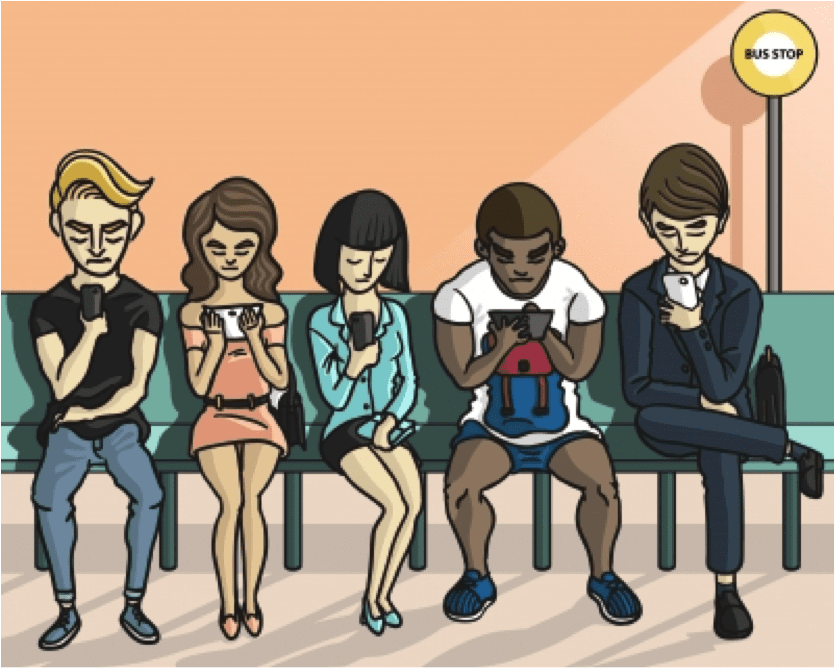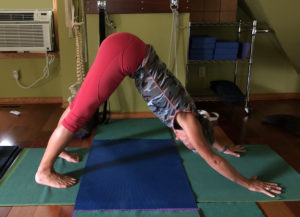I am pondering the possibility that globally we are an addictive society. If we were to suspend our defensiveness and open our minds to this possible truth, then is it also true that each of us has been or still is addicted to something. As Zig Ziglar claimed, “What we see in others, exists in us.” Given you likely see addiction in your families and workplaces . . . then, what is your addiction?
By the way, where there is one addiction there are usually more so look deeply into your repetitive behaviours. Because, in my case, addictions are coping mechanisms for dealing with anxiety and boredom, I discovered myself using several “busy behaviours” as temporary distractions. At the time, I did not understand what drove me to default to these addictive behaviours. Today, I recognize the combination of a skill deficit (low self-awareness) and a confidence deficit (low self-esteem) add up to a sense of neediness and a lack of fulfillment. I can’t claim that my deficits caused my addictions but they certainly helped them flourish.
At different times in our social history with addiction, research concluded its causes to be associated with a hijacked brain due to chemical alterations or impoverished, unhappy environments. No doubt both experiences exacerbate addictive behaviour; however I dispute they cause addiction.
I need to segue for a moment and offer, what I think adds to the confusing current dialogue and treatment around addiction, these general definitions:
- Inability to control the addiction without help because of the mental or physical conditions involved.
- Habitual psychological or physiologic dependence on a substance or practice that is beyond voluntary control.
- A state characterized by compulsive engagement in rewarding stimuli despite adverse consequences.
For me, a question underlies these definitions’ shared assumption of a lack of voluntary control — when does a conscious or unconscious habit move beyond voluntary control into an addiction?
In my youth, my particular learned habit that eventually became an addiction was my striving and driving to achieve excellence. Arguably, some would call this competition. In retrospect, I bought into this way of living through driving ambition because I thought it would help me create a better life. Instead, I discovered the achievement of one excellent goal was immediately replaced with the need to achieve another, and so on and so on. Addiction had taken over where self-awareness and self-esteem were in short supply.
Even though medical theories on the causes of addiction are confusing and sometimes false, we can all agree addiction is a multi-faceted and complex experience. Furthermore, addiction is signaled by a deeply pressing need for any or all of the following:
- Bolstering one’s low self-esteem through false self-nurturing via damaging co-dependent relationships and substance dependencies (food, sugar, alcohol, cigarettes, drugs).
- Enacting habitual and compulsive behaviours such as striving and driving, ambition, deferring to authority and controlling others to achieve one’s desires.
- Using pleasure- or thrill-seeking (extreme athletics, sexual obsessions) and pain avoidance (loneliness, anxiety, boredom) to divert one’s own attention or attract the attention of others.
Clearly when we are seeking approval, achievement and attention, our focus is on the external world rather than our internal sense of discernment and integrity. Overtime, this disconnection from self (emotions, sense of purpose, self-esteem and self-love) also disconnects us from wider society further fueling feelings of loneliness and low self-worth.
I agree that disconnection is a personal and social problem. However, I find Johann Hari’s claim — “the opposite of addiction is not sobriety. It is human connection.” — to be too simplistic. More than human connection is required. What proves this point is the adage, “birds of a feather flock together.” Typically, addicts commune with addicts and non-addicts commune with non-addicts. The segregation between these two groups entrenches social isolation and shunning, which further inhibits any exchange of empathy and compassion.
To further this point, I also find “tough love advice” advocating addicts “shape up or be cut loose” overly simplistic. Look around you. Cutting addicts loose hasn’t worked as a long-term treatment plan. They now live and die on our streets. Even the confusing definitions listed earlier in this blog recognize a deeper kind of human connection and help is needed.
The human help we can offer is unconditional love — empathy and compassion. This is a big ask. I know how challenging it is to love an addict because I lived with an alcoholic uncle as a teenager and did not feel anything close to unconditional love for him. Fortunately, life never gives up on us, and I am currently called to repeat this lesson with a friend whose addiction has landed him in prison. It is still hard to release blame and disgust, but oh so necessary.
What one act of unconditional love can you offer to an addict you know?
For more on unconditional love and healing, click here.





